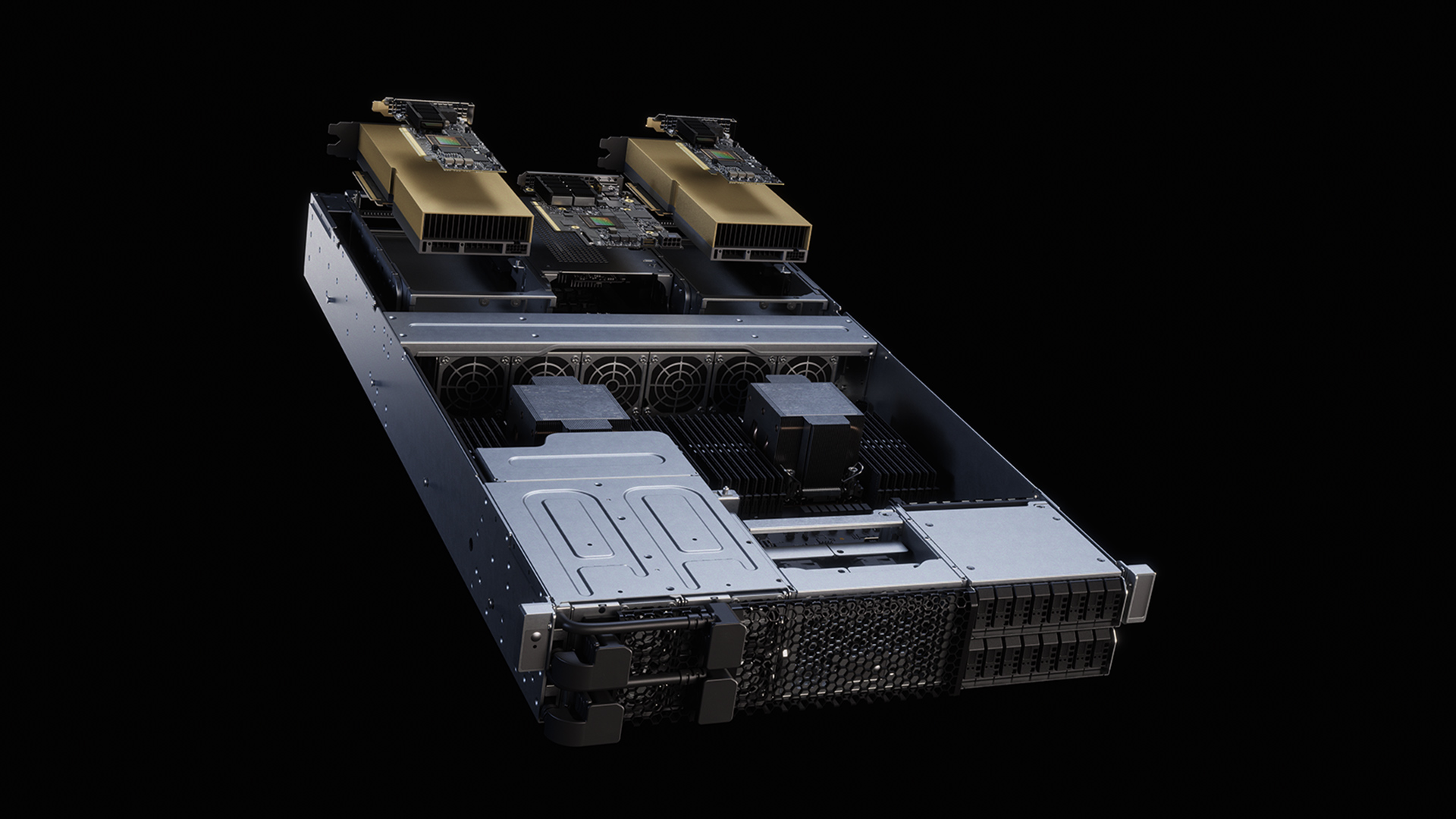Nvidia's smallest workstation CPUs get a Blackwell boost, but will still pack a punch - and cost a whole lot less than you might think
Nvidia RTX Pro 4000 SFF and Pro 2000 pack extreme AI capabilities into compact devices

Sign up for breaking news, reviews, opinion, top tech deals, and more.
You are now subscribed
Your newsletter sign-up was successful
- Nvidia RTX Pro 4000 SFF delivers over twice the AI performance of its predecessor
- Nvidia claims the RTX Pro 2000 outpaces the RTX A2000 in 3D modeling performance
- Both new GPUs maintain a 70-watt limit, enabling deployment in space-limited systems
Nvidia has launched two new SFF (Small Form Factor ready) RTX Pro Servers and workstation GPUs built on its Blackwell architecture that use a single-fan, blower-style, low-profile design.
The new RTX Pro 4000 SFF and RTX Pro 2000 slot in beneath the top-end RTX Pro 6000 but are designed to maintain strong performance for professional workloads in smaller, lower-power workstation builds.
Both GPUs aim to shift more processing from CPU to GPU, allowing even small-form-factor workstations to handle AI inference, rendering, and simulation faster than before.
Compact hardware with workstation-level capability
The RTX Pro 4000 SFF is built with 24GB of ECC GDDR7 memory and delivers up to 770 AI TOPS.
Nvidia says it offers more than twice the AI performance of the previous-generation RTX A4000 SFF, and also features improved ray tracing, 50% more memory bandwidth, and has a 70W thermal limit, making it suitable for workstations with limited cooling capacity.
The RTX Pro 2000, also limited to 70W, carries 16GB of ECC GDDR7 memory and 545 AI TOPS of throughput.
Nvidia claims it is about 1.5 times faster than the RTX A2000 in 3D modeling, CAD, and rendering.
Sign up to the TechRadar Pro newsletter to get all the top news, opinion, features and guidance your business needs to succeed!
The company also points to its usefulness in AI-powered image and text generation, potentially speeding up design and content workflows in smaller studios or engineering teams.
These workstation GPUs share the Blackwell architecture benefits found in Nvidia’s larger RTX PRO lineup, including support for FP4 precision through fifth-generation Tensor Cores and the second-generation Transformer Engine.
This is intended to improve inference performance while keeping power consumption in check.
Nvidia has not yet disclosed specific pricing for these models but has indicated that it will make them available through partners such as PNY, TD Synnex, Dell, HP, and Lenovo later this year.
Given their position below the RTX Pro 6000, they are expected to cost considerably less while still providing a large performance increase over earlier small-format workstation GPUs.
While marketed as an upgrade path for professionals, the actual advantage over the fastest CPU-only small workstation configurations will depend on workload type and software optimization for GPU acceleration.
For tasks that already benefit heavily from GPU compute, such as AI inference, large-scale rendering, and simulation, the new RTX Pro 4000 SFF and RTX Pro 2000 could offer strong gains without requiring a larger, more expensive workstation.
For CPU-focused applications, the improvements may be less dramatic, but the added GPU capability still expands the performance envelope for small, power-limited systems.
You might also like
- Are you better at coding than an AI? Developers don’t think so
- These are the best NAS devices around
- We've also rounded up the best cloud storage platforms on offer

Efosa has been writing about technology for over 7 years, initially driven by curiosity but now fueled by a strong passion for the field. He holds both a Master's and a PhD in sciences, which provided him with a solid foundation in analytical thinking.
You must confirm your public display name before commenting
Please logout and then login again, you will then be prompted to enter your display name.